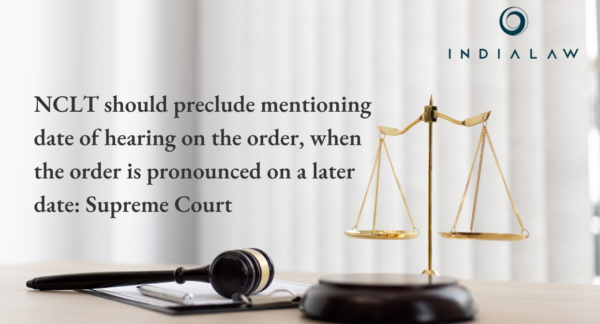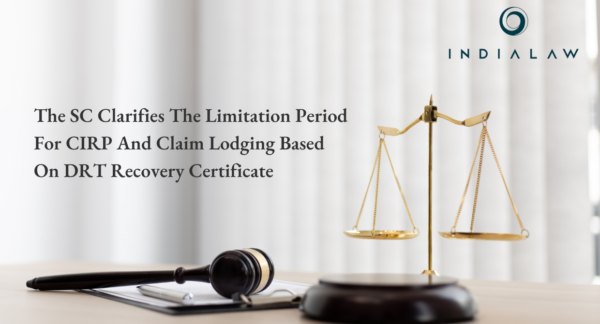Tag: Limitation

Litigant must explain sufficient cause which extended delay in filing appeal beyond the prescribed period of limitation: Supreme Court
The usual manner in which litigating parties seek to condone delays in filing various proceedings, and explaining the delay in filing such proceeding only after the prescribed period of limitation, has been deprecated by the

Limitation Period For Filing A Suit For Declaration Along With Recovery Of Possession Is 12 Years And Not 3 Years: Supreme Court
The Hon’ble Supreme Court (“SC”) in a recent decision[1] has laid down that the limitation period for filing a suit for declaration of title, along with a relief for the recovery of possession shall be

Delhi High Court Upholds Its Original Side Rules, Prescribing A Maximum Period Of 120 Days For Filing Of Written Statements In All Suits Filed Before It
The Hon’ble Delhi High Court (“Delhi HC”) was recently presented with a challenge[i] to the constitutionality of Rule 4, Chapter VII of the Delhi High Court (Original Side) Rules, 2018 (“Original Side Rules”)[ii], which mandates

NCLT should preclude mentioning date of hearing on the order, when the order is pronounced on a later date: Supreme Court
The Three Judge Bench of Hon’ble Supreme Court (SC) comprising of Chief Justice of India D.Y. Chandrachud, Justices J.B. Pardiwala and Manoj Mishra in Sanjay Pandurang Kalate v. Vistra ITCL (India) Limited and Others[i] clarifiedthat

The SC Clarifies The Limitation Period For The Purposes Of Initiating CIRP And Lodging Claim During CIRP On The Basis Of A DRT Recovery Certificate As Financial Debt.
The Hon’ble Supreme Court (SC) in the case of Tottempudi Salalith Vs. State Bank of India & Ors.[1] has affirmed its previous judgments and held that a DRT Recovery Certificate holder shall have, from the

Delhi High Court reiterates its findings on what constitutes non est filing for the purposes of calculating period of limitation.
Introduction The High Court of Delhi, in a recent judgement re-iterated the concept of non-est filing in Ambrosia Corner House Private Limited V. Hangro S Foods1. The Court laid out instances that would constitute non-est
- Arbitration and Conciliation
- Banking and Finance
- Bankruptcy Code – Public Announcements
- Civil
- Commercial litigation
- Commercial/Corporate
- Competition act
- Criminal
- Cyber Law
- Debt Recovery
- Environment
- Family Law
- Food
- IL News
- Infrastructure
- Insolvency & Bankruptcy
- Insurance
- Intellectual Property Rights
- International
- Labour
- Law
- Medico-Legal
- Negotiable Instrument
- NRI Laws
- Policy
- Power
- Real Estate
- Tax

